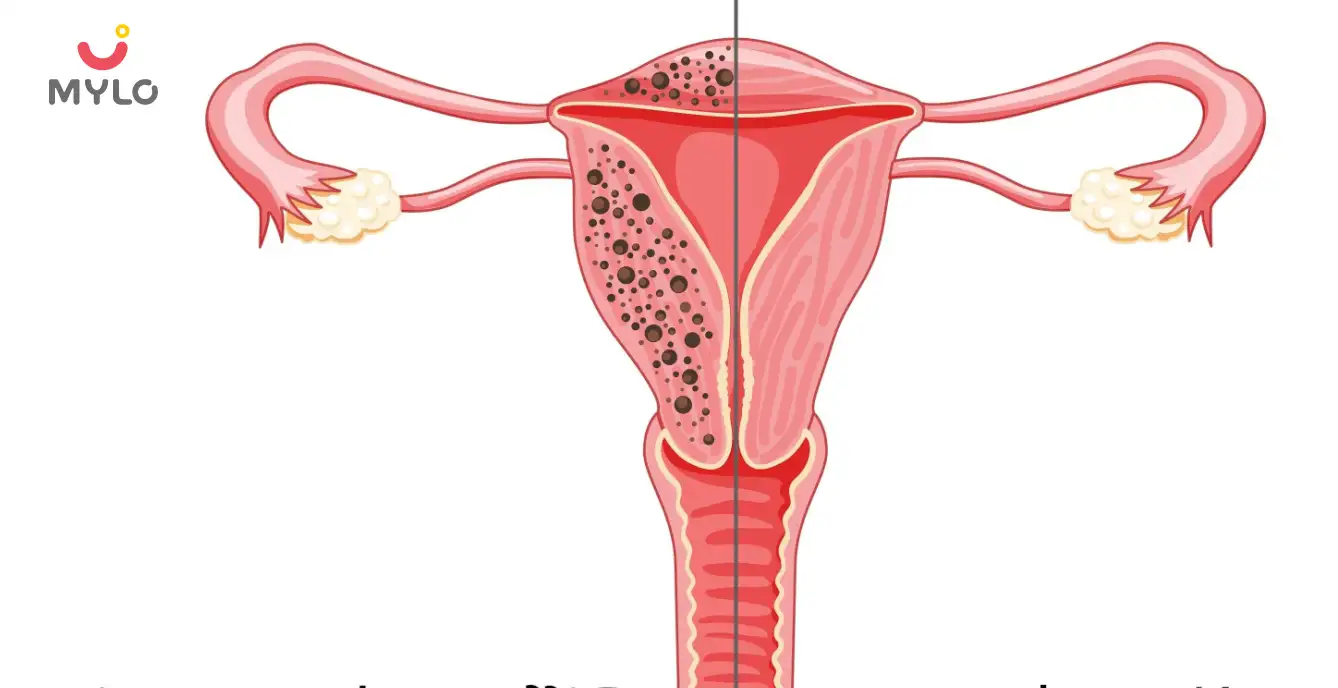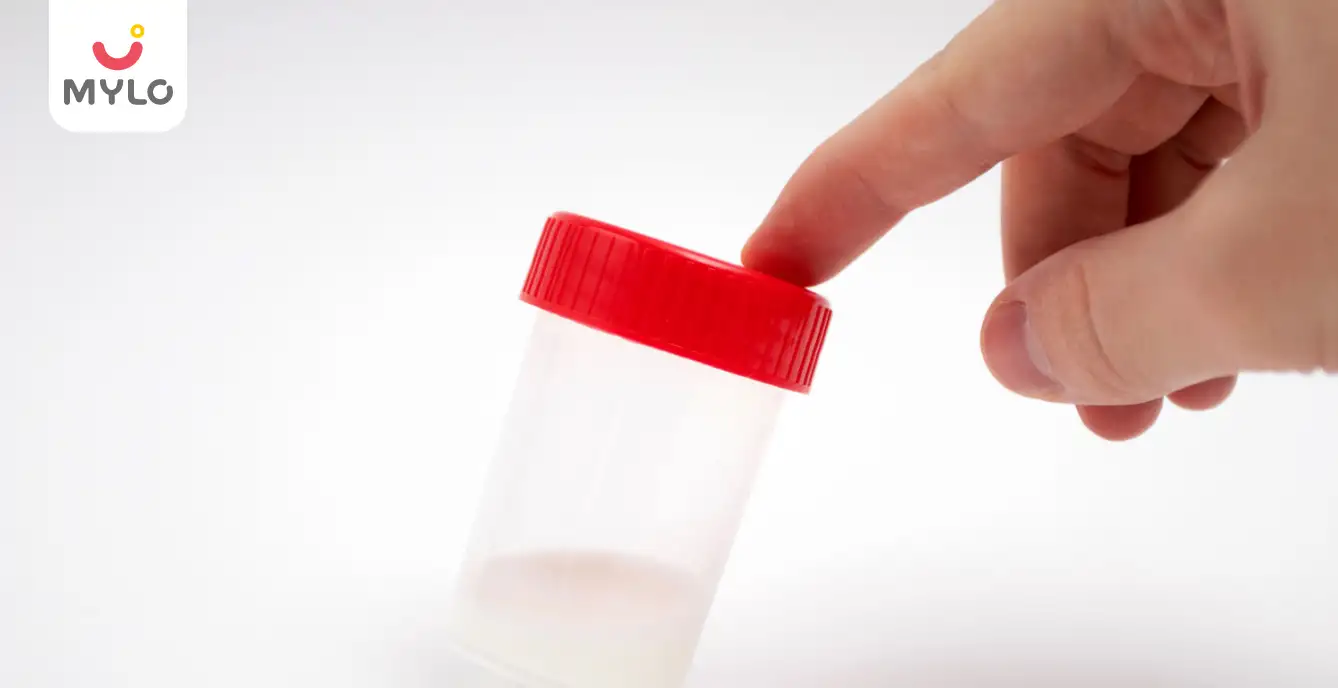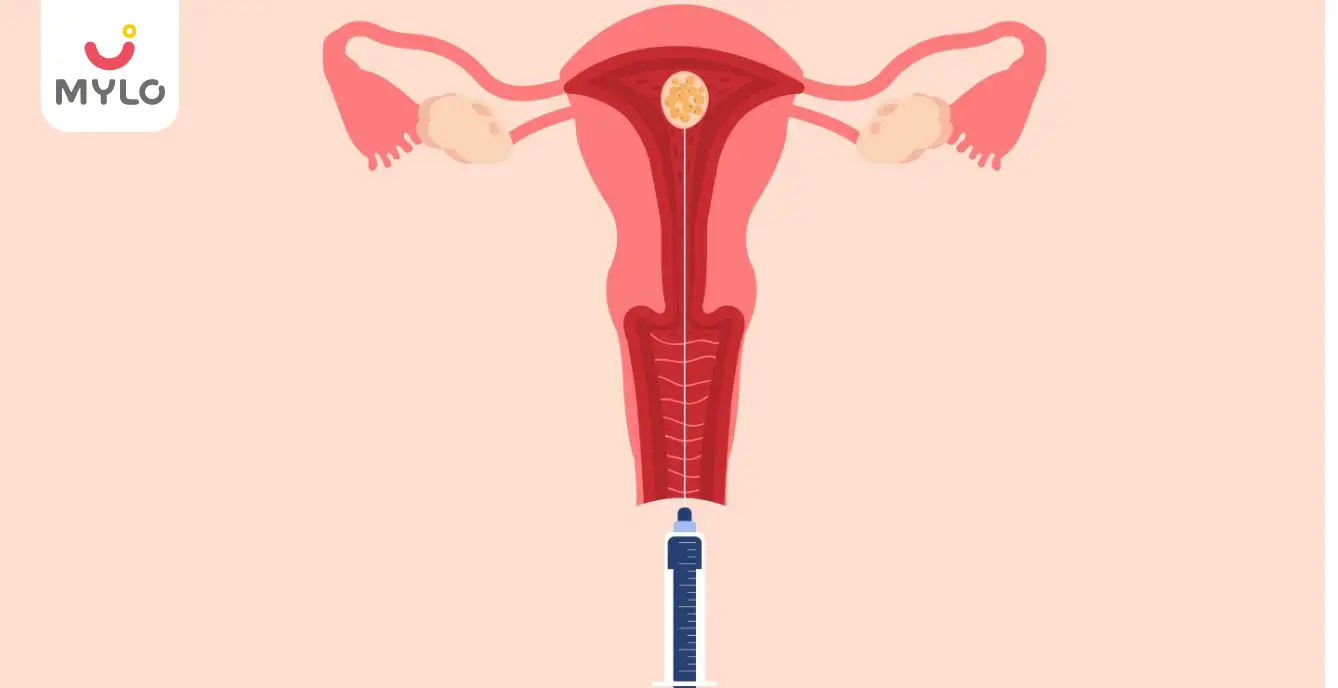Home

Common Health Problems

Can a Woman with Thyroid Problems Get Pregnant: Conceiving Against the Odds
In this Article

Common Health Problems
Can a Woman with Thyroid Problems Get Pregnant: Conceiving Against the Odds
Updated on 3 August 2023
Having been diagnosed with thyroid issues at a young age, Shreya had always known that starting a family might not be easy for her. She spent countless nights poring over internet articles, trying to find answers amidst a sea of contradictory information. Frustration and tears often accompanied every negative pregnancy test, leaving her feeling defeated. And her question- can a woman with thyroid problems get pregnant- remained unanswered.
So, whether you're a woman navigating the trials of thyroid issues, a supportive partner seeking understanding, or a curious reader eager to delve into tales of courage, this article is here to inspire and inform. Join Shreya as we uncover the truths, debunk the myths, and celebrate the triumphs of those who dared to defy the odds on the incredible path to motherhood.
Can a woman with thyroid problems get pregnant?
Many women with thyroid problems wonder can thyroid patient get pregnant. The answer is yes, but it may require some extra attention and care. Thyroid dysfunction, such as hyperthyroidism and hypothyroidism, can affect fertility by causing altered ovulatory function, menstrual irregularities, and higher miscarriage rates. Subclinical hypothyroidism and thyroid autoimmunity can also contribute to subfertility.
Despite the odds, women with thyroid problems can still fulfill their dreams of becoming mothers with proper diagnosis and treatment. It is recommended for women over the age of 30 with infertility or a history of miscarriage to undergo screening for thyroid dysfunction.
Also Read : Thyroid: Types, Causes, Symptoms & Treatment
What are the chances of getting pregnant with hypothyroidism?
Hypothyroidism, a condition where the thyroid gland does not produce enough thyroid hormone, can impact a woman's fertility. When thyroid hormone levels are low, it can disrupt the menstrual cycle, making it difficult to predict ovulation and conceive. Additionally, untreated or uncontrolled hypothyroidism can lead to other hormonal imbalances that further hinder fertility.
However, with appropriate thyroid hormone replacement therapy, the chances of getting pregnant with hypothyroidism can be improved. It is crucial for women with hypothyroidism to work closely with their healthcare provider to optimize their thyroid hormone levels before attempting to conceive. Regular monitoring of thyroid function and adjusting medication dosage if necessary can help increase the likelihood of successful conception.
What are the chances of getting pregnant with hyperthyroidism?
If you are wondering, can I get pregnant with hyperthyroidism, let us understand what your chances are. Hyperthyroidism, a condition characterized by an overactive thyroid gland, can also impact a woman's fertility. Excessive thyroid hormone levels can disrupt the delicate balance of hormones necessary for regular ovulation and menstrual cycles. Irregular periods and anovulation (lack of ovulation) can make it challenging to conceive.
Similar to hypothyroidism, proper management of hyperthyroidism is crucial for improving the chances of getting pregnant. Treatment options for x`include antithyroid medications, radioactive iodine therapy, or surgery. Once the thyroid hormone levels are under control, the menstrual cycle typically becomes more regular, increasing the chances of successful conception.
What should my thyroid levels be to get pregnant?
Thyroid hormone levels play a vital role in fertility and a healthy pregnancy. When planning to conceive, it is essential to have optimal thyroid function. The American Thyroid Association recommends the following target levels for thyroid hormones:
-
TSH (Thyroid-Stimulating Hormone) levels should be between 0.4 and 2.5 milliunits per liter (mU/L) before pregnancy.
-
Free T4 (Free Thyroxine) levels should be in the mid to upper range of the normal reference range.
Maintaining these optimal levels helps ensure proper ovulation, implantation, and fetal development. It is crucial to work closely with a healthcare provider to monitor and adjust thyroid medication dosage as needed to achieve these target levels.
Does thyroid medication affect fertility?
Thyroid medication, such as levothyroxine, is commonly prescribed to manage thyroid problems. It is a synthetic form of the thyroid hormone that helps regulate thyroid function. When taken correctly, thyroid medication can restore thyroid hormone levels to normal and improve fertility.
In fact, treating hypothyroidism with thyroid medication can significantly increase the chances of getting pregnant. It helps restore regular ovulation and menstrual cycles, making it easier to predict the fertile window. For women with hyperthyroidism, antithyroid medications can help bring thyroid hormone levels under control, improving fertility.
It is essential to work closely with a healthcare provider to determine the correct dosage of thyroid medication and to monitor thyroid hormone levels regularly. Adjustments may be necessary during pregnancy as hormone requirements can change.
What are some fertility treatments for thyroid patients?
For women with thyroid problems who are struggling to conceive naturally, several fertility treatments can help increase the chances of pregnancy. These treatments are often tailored to the individual needs of each patient and may include:
1. Ovulation induction:
Medications such as clomiphene citrate or letrozole are used to stimulate the ovaries and increase the chances of ovulation.
2. Intrauterine insemination (IUI):
This procedure involves placing sperm directly into the uterus during the fertile window to enhance the chances of fertilization.
3. In vitro fertilization (IVF):
IVF is a more advanced fertility treatment where eggs are retrieved and fertilized in a laboratory. The resulting embryos are then transferred to the uterus.
It is crucial for thyroid patients undergoing fertility treatments to have their thyroid hormone levels closely monitored and adjusted as needed to optimize fertility and pregnancy outcomes.
Tips to improve fertility naturally with thyroid problems
While medical interventions are often necessary for women with thyroid problems to conceive, there are also some natural steps that can be taken to improve fertility. Here are seven tips to consider:
1. Maintain a healthy lifestyle:
Eating a balanced diet, exercising regularly, and managing stress can positively impact fertility.
2. Track menstrual cycles:
Using an ovulation predictor kit or monitoring basal body temperature can help identify the fertile window.
3. Optimize thyroid function:
Work closely with a healthcare provider to ensure optimal thyroid hormone levels.
4. Supplement with key nutrients:
Certain nutrients, such as selenium and iodine, are important for thyroid health and fertility.
5. Avoid environmental toxins:
Minimize exposure to chemicals found in certain household products, pesticides, and plastics, as they may disrupt hormone balance.
6. Consider acupuncture or other complementary therapies:
Some women find these therapies helpful in promoting fertility.
7. Seek emotional support:
Dealing with fertility challenges can be emotionally draining. Connecting with support groups or seeking counseling can be beneficial.
You may also like : Papillary Thyroid Carcinoma
How can I control my thyroid to get pregnant?
Controlling your thyroid to improve fertility requires proper management of your thyroid condition. Here are some key steps to consider:
1. Consult with a healthcare provider:
Work closely with a healthcare provider who specializes in thyroid disorders and fertility to develop a personalized treatment plan.
2. Regularly monitor thyroid hormone levels:
Regular blood tests are essential to ensure that your thyroid hormone levels are within the optimal range.
3. Take thyroid medication as prescribed:
Follow your healthcare provider's instructions regarding the timing and dosage of your thyroid medication.
4. Communicate with your healthcare provider:
Inform your healthcare provider if you are planning to conceive or if you suspect you may be pregnant. Adjustments to medication dosage may be necessary.
5. Maintain a healthy lifestyle:
Adopting a healthy lifestyle, including a balanced diet, regular exercise, and stress management, can support thyroid health and fertility.
FAQs
1. What is a good TSH level to get pregnant?
Many women wonder what should my thyroid levels be to get pregnant. A good TSH level to get pregnant is between 0.4 and 2.5 milliunits per liter (mU/L). This optimal range ensures that the thyroid gland is functioning properly and that thyroid hormone levels are within the normal range.
2. Can thyroid be cured completely?
Thyroid problems such as hypothyroidism or hyperthyroidism cannot be cured completely in most cases. However, with appropriate management and treatment, they can be effectively controlled, allowing women to lead healthy lives and have successful pregnancies.
The Bottomline
In answer to the question can a woman with thyroid problems get pregnant, women with thyroid problems can get pregnant and have healthy pregnancies with proper management and medical support. Whether dealing with hypothyroidism or hyperthyroidism, it is crucial to work closely with a healthcare provider to optimize thyroid hormone levels and address any underlying fertility issues. With the right treatment plan, fertility treatments, and healthy lifestyle choices, women with thyroid problems can increase their chances of conceiving and having a successful pregnancy.
References
1. Cho MK. (2015). Thyroid dysfunction and subfertility. Clin Exp Reprod Med.
2. Verma I, Sood R, Juneja S, Kaur S. (2012). Prevalence of hypothyroidism in infertile women and evaluation of response of treatment for hypothyroidism on infertility. Int J Appl Basic Med Res.



Written by
Anupama Chadha
Anupama Chadha, born and raised in Delhi is a content writer who has written extensively for industries such as HR, Healthcare, Finance, Retail and Tech.
Read MoreGet baby's diet chart, and growth tips

Related Articles
Related Questions
Influenza and boostrix injection kisiko laga hai kya 8 month pregnancy me and q lagta hai ye plz reply me

Hai.... My last period was in feb 24. I tested in 40 th day morning 3:30 .. That is faint line .. I conculed mylo thz app also.... And I asked tha dr wait for 3 to 5 days ... Im also waiting ... Then I test today 4:15 test is sooooo faint ... And I feel in ma body no pregnancy symptoms. What can I do .

Baby kicks KB Marta hai Plz tell mi

PCOD kya hota hai

How to detect pcos

Related Topics
RECENTLY PUBLISHED ARTICLES
our most recent articles

Periods
Adenomyosis Vs Endometriosis: How to Spot the Symptoms and Seek Early Intervention

Fertility Test for Men and Women: What to Expect and Next Steps

Periods
Reason for Irregular Periods After Marriage: A Comprehensive Guide

Conception
How Soon Can You Get Pregnant After Stopping the Pill?

Fertility
Watery Semen: Is It Normal or a Sign of an Underlying Condition?

In Vitro Fertilization (IVF)
Embryo Transfer: The Ultimate Guide to Procedure, Success Rates and FAQs
- Hyperspermia: The Ultimate Guide to Understanding Excessive Semen Production
- Painful Ejaculation and Its Impact on Men's Health: From Stigma to Solutions
- Hypospermia: What Every Man with Low Semen Volume Should Know
- Eye Flu Alert: The Seasonal Epidemic You Need to Know About
- How Many Days After IUI Should I Get My Period: Understanding the Timeline
- An Expecting Mother's Guide to Glucose Tolerance Test (GTT)
- Difference Between IUI and IVF: Which is Better for You?
- Ovarian Stimulation: Understanding the Process and What to Expect
- IVF Baby Delivery: Will You Have a C Section or Vaginal Delivery?
- How Many Injections for IVF Treatment Do You Really Need
- IUI Failure Symptoms & Reasons: Understanding Why IUI Fails & What to Do Next
- Lactose Intolerance in Babies: A Parent’s Guide to Identifying and Managing it
- TESA IVF: How This Procedure Can Help You Achieve Your Dream of Parenthood
- How Can You Encourage Sensory Play for Your Baby and What are Its Benefits?


AWARDS AND RECOGNITION

Mylo wins Forbes D2C Disruptor award

Mylo wins The Economic Times Promising Brands 2022
AS SEEN IN

- Mylo Care: Effective and science-backed personal care and wellness solutions for a joyful you.
- Mylo Baby: Science-backed, gentle and effective personal care & hygiene range for your little one.
- Mylo Community: Trusted and empathetic community of 10mn+ parents and experts.
Product Categories
baby carrier | baby soap | baby wipes | stretch marks cream | baby cream | baby shampoo | baby massage oil | baby hair oil | stretch marks oil | baby body wash | baby powder | baby lotion | diaper rash cream | newborn diapers | teether | baby kajal | baby diapers | cloth diapers |




